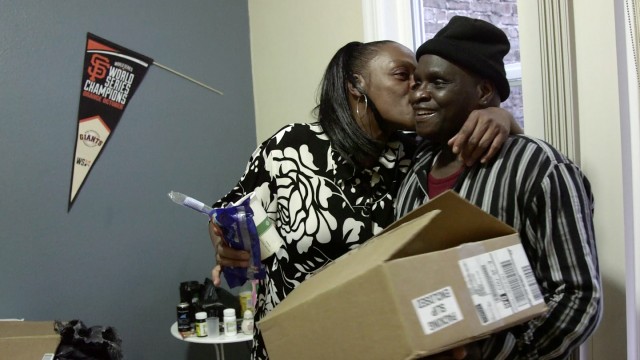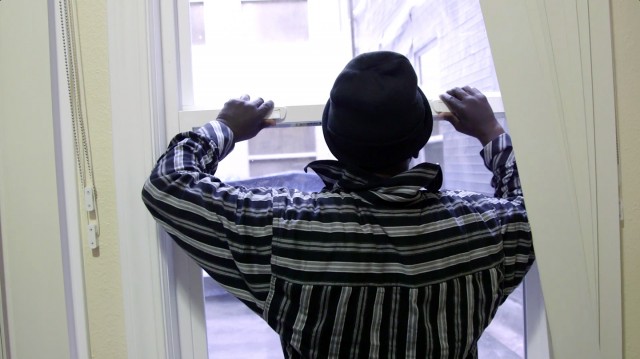Video: San Francisco Homeless Veterans Get Permanent Place to Live
By Katie Brigham
At 58 years old, Clarence Cook finally has a place of his own to call home.
Living on the streets of San Francisco since 1997, the Army veteran has been in and out of jail for more than three decades while battling a heroin addiction.
Today, Cook has been clean for six months. Earlier this month, he become one of the first 30 residents to move into 250 Kearny — a single-room-occupancy property on the edge of San Francisco's Financial District that has been newly renovated to house 130 homeless veterans.

“I feel more of a sense of independence by having my own key,” Cook said. “Now I will have the opportunity to get me some employment … and give back to society, for giving me a second chance.”
The former Stanford Hotel has been under construction since 2010 after a notorious past as one of the worst SROs in the city. It was mostly vacant, and filled with debris left by squatters, before it was bought and renovated by real estate developer Sam Patel.
Persuaded by San Francisco’s goal of ending veteran homelessness, Patel chose to rent the building to the city even though there were eight other bidders, some of whom were willing to pay 25 percent more than what the city offered. He and partner Sam Devdhara invested $10 million in improving the property. They have a history of supporting housing for homeless people.
It was a major triumph for the city, the U.S. Department of Veterans Affairs, related veterans service organizations and community partners, all of whom worked together to secure funding for the lease.
Eager for a new beginning, Cook is the type of chronically homeless veteran that the city and the VA targeted for residency at 250 Kearny.
“Once someone who is highly vulnerable moves into independent housing, they are significantly more likely to be successful in all other areas of their life,” said Miriam Beyer, a social work supervisor for the Department of Housing and Urban Development Veterans Affairs Supportive Housing program.
Beyer explains that research within the last 20 years supports “housing-first principles.” This is the idea that the most effective solution for chronic homelessness is moving individuals straight from the streets into stable housing, as opposed to a "housing-readiness" philosophy, which moves people through different levels of transitional housing.
“Once somebody has a home that’s consistent, that’s stable, they’re able to work on all of those other tasks that are not immediately related to survival on the streets,” Beyer said.

Bevan Dufty, director of Housing Opportunity, Partnerships and Engagement for the City and County of San Francisco, estimated that there are 700 homeless veterans in San Francisco. About 375 of them applied for the 130 slots available at 250 Kearny.
Those selected had been homeless the longest and have the highest need for the comprehensive services and on-site social workers that 250 Kearny provides.
Cook said it’s also important that 250 Kearny is located outside the Tenderloin, where drugs and violence are rampant. “A lot of veterans, including myself, we may have problems with different chemicals. By being outside, it gives you a better chance at staying clean.”
At last, Cook seems on track to achieve this goal. He is engaged to his girlfriend of 14 months, Lynette Baldwin, who helped him through a relapse and inspired him to stay sober.
Now that Cook has a stable address, he is eager to find employment. He says he could see himself as a truck driver, but he’s not picky. “As long as it’s work that’s honest,” he says.
As veterans like Cook search for new jobs, they need not fear getting behind on rent. Though rooms at 250 Kearny go for $1,190 per month, residents are required to pay only 30 percent of their income in rent. If they are still searching for work, their rent will be covered in the meantime.
The remainder is covered with housing vouchers from Veterans Affairs Supportive Housing, a partnership between the VA and U.S. Department of Housing and Urban Development.
Cook says he wishes every veteran were afforded this opportunity to get back on their feet, and hopes those who are struggling can find hope in his story.
“It just might save someone young, it just might save them to hear an old veteran, convict, dope user, stopped and turned his life around. It’s never too late.”